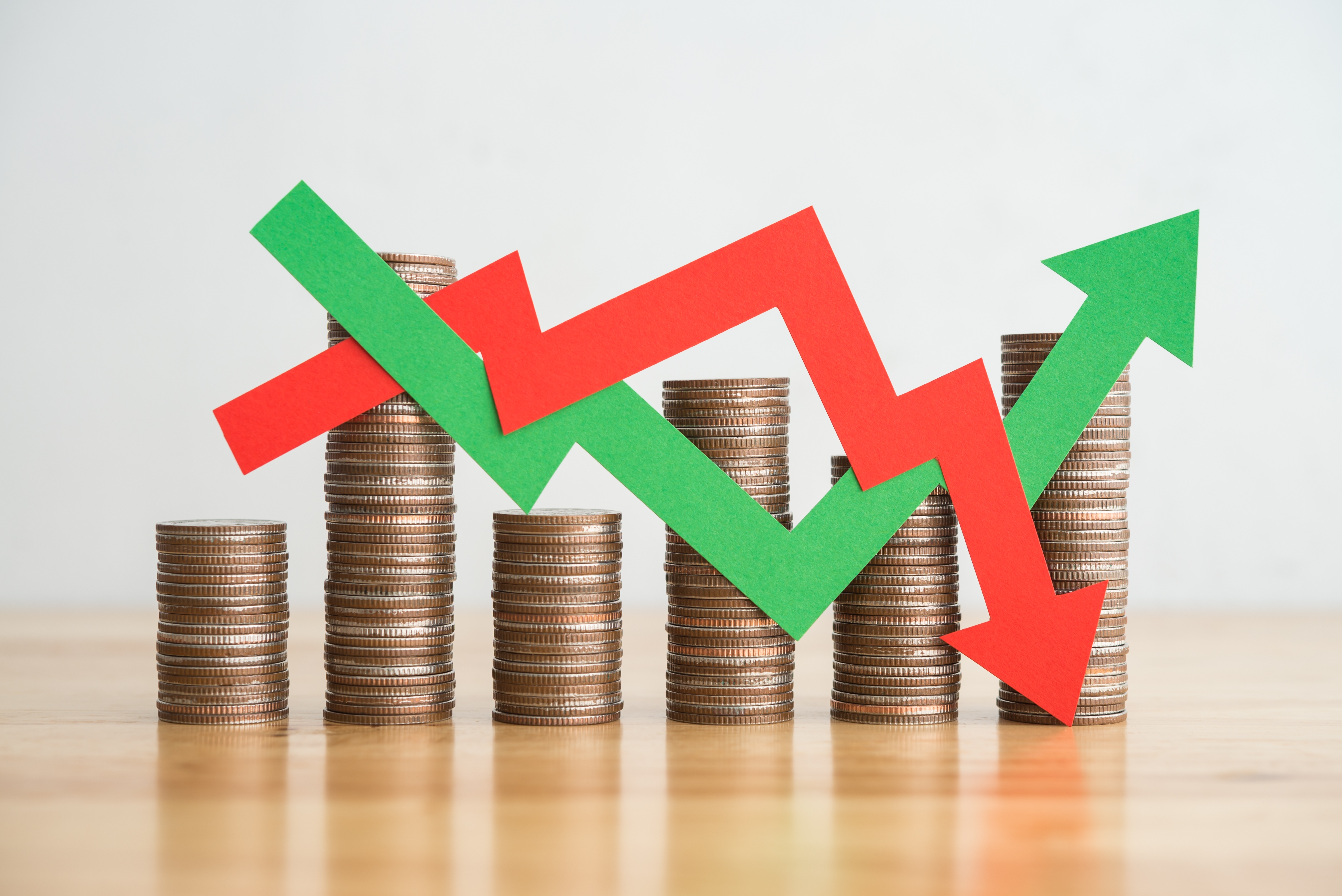Investing review: how the best and worst funds, companies and more fared in 2022
Find out which investors enjoyed gains of 50% and who are smarting from losses of almost 60% in our 2022 investing review.
What happened in 2022?
It’s been yet another challenging year – despite optimism having been high at the start of 2022 with the Covid-19 pandemic being under control in most countries.
We’ve endured soaring inflation, rising interest rates, a punishing cost of living crisis, the war in Ukraine, widespread political uncertainty, and waves of strikes.
And hopes that the England men’s football team could put a smile back on our faces were dashed when we lost to France in the World Cup quarter finals.
Here we look back at 2022, look at the top-performing sectors, and highlight the best and worst-performing stocks of the year.
According to Jason Hollands, managing director of Bestinvest, many investors will be glad to see the back of this year given the “cocktail of concerns” with which they’ve had to contend.
“The dominant theme looming over both the real economy and the markets in 2022 has been inflation awakening from its long slumber to the highest levels in over forty years,” he said.
This has resulted in a cost-of-living crisis and a decline in real incomes that in turn is fuelling the current wave of strikes in the run-up to the festive period.
Danni Hewson, financial analyst at AJ Bell, believes this could have a damaging effect on businesses as 2022 draws to a close.
“Despite a welcome World Cup bounce for many hospitality businesses, there have been warnings that rail strikes could be as damaging to the sector as the Omicron Covid variant was last year,” she said.
The good, bad & ugly for investors
Let’s start with the stock markets.
The good news is that the UK market has been one of the best global performers, according to Jason Hollands at Bestinvest.
“UK larger companies – those in the FTSE 100 – (are) set to beat the calendar returns of the S&P 500 Index of US companies for only the second time in thirteen years,” he said.
The blue-chip index, widely regarded as a barometer of UK investing health, has benefitted from high exposure to the energy sector, which has performed very well this year.
It’s fair to say that global stock markets have had “an odd year”, according to Ben Yearsley, investment director at Shore Financial Planning in Plymouth, Devon.
“There have been 58 moves down of 1% or more in the S&P 500 according to Mirabaud and the last time this happened was 2008,” he said.
“We all know what happened that year!”
The period to which he refers – 14 years ago now – saw a global financial crisis in the wake of the subprime mortgage disaster and the collapse of Lehman Brothers.
“The S&P has been among the worst of the major indices (in 2022) falling over 16% in dollar terms,” he said.
“The Hang Seng was having the worst year, down 35% by mid-October, but the rebound since has been astonishing.”
Twitchy investors pulled their funds
All the uncertainty this year has been bad news for the investment management industry with nervous people withdrawing their money.
In fact, total funds under management stood at £1,354.2 billion, according to the most recent Investment Association data.
This was 13.4% lower than the £1,563.1 billion level a year ago.
UK savers took £3.7 billion out of funds in October 2022 alone – the ninth month of net retail outflows this year.
Mixed asset funds were particularly badly hit with £808 million being withdrawn.
However, it’s not all doom and gloom, according to Chris Cummings, the IA’s chief executive.
“There are pockets of promising news, with investors once again favouring tracker funds, with inflows the second highest so far this year,” he said.
“Responsible investment funds, which have seen consistent inflows throughout the year, also moved back to inflows.”
Tracker funds closely follow a particular index with the aim of mirroring their performance.
Actively managed funds, meanwhile, aim to beat it, although there are no guarantees.
Best & worst investment sectors of 2022

It’s been carnage on stock markets this year.
In fact, the average returns of the overwhelming majority of IA sectors are mired in negative territory, according to Morningstar data compiled for us to the end of November 2022.
The worst performing sectors year-to-date have been IA UK Index Linked Gilts, which is down 31.20%; and IA UK Smaller Companies that’s fallen 25.16%.
IA Technology and Technology Innovation, IA UK Gilts, and IA European Smaller Companies have all recorded falls of more than 20%.
A further 10 are down by more than 10%.
However, it’s not been all bad news.
Some investors will have made money this year, but only if they’d put their money in a relative handful of sectors.
The stand-out performer has been IA Latin America, where the average returns have risen 20.11% year-to-date.
This sector is for funds investing at least 80% of assets in Latin American equities.
According to Chetan Sehgal, lead portfolio manager of the Templeton Emerging Markets Investment Trust, there are reasons why this area has performed strongly.
“Latin American economies have been among the best performers in the emerging markets category year-to-date, driven by the rise in the energy sector, which has posted double-digit returns,” he said.
Sehgal highlighted other emerging areas.
“We are also optimistic about India.
“The country’s growth trajectory is forecast to outpace all emerging and developed economies in 2023,” he said.
The IA India/Indian Subcontinent sector was up 4.21% on average during 2022 – and has enjoyed a 6.03% uplift over the past year, according to Morningstar.
Sehgal, meanwhile, expects growth to be robust in 2023, with catalysts such as the rise of the middle class and a potential manufacturing boom.
“Indian equities will likely continue to outperform other emerging markets amidst expectations for continued strong economic growth,” he added.
Other positive IA sector performers this year include IA Infrastructure, which rose 3.6%, while there was a very modest increase of 0.06% for the IA Global Equity Income sector.
Company winners & losers 2022
There have been clear winners and losers among quoted companies – and which side of the fence they fell largely depended on their industry.
The fact is that company earnings actually held up quite well during 2022, according to Jason Hollands at Bestinvest.
“The slide in equity markets during the year has primarily reflected a revaluation of companies to more reasonable levels rather than a deterioration in their profitability,” he said.
An analysis of FTSE 100 performance data reveals that two-thirds of companies in the index have seen their share prices fall over the past year to 15 December.
UK-based publishing group Pearson, which focuses on educational titles, has been the biggest riser in the index with a 56.55% increase during 2022.
In a nine-month trading update released on 24 October, it announced group underlying sales were up 7% and that it was on track to deliver £100 million of efficiencies in 2023.
Roddy Davidson, research analyst at Shore Capital, said he was pleased to note the “positive momentum and growth” outlook.
“We like Pearson’s growing exposure to – and substantial investment in – digital products, and its status as a beneficiary of a positive medium-term outlook for global learning spend,” he added.
UK defence company BAE Systems has risen 54.71% over the past year and been a strong performer, according to Victoria Scholar, head of investment at interactive investor.
“The war in Ukraine has sharply boosted demand for its products allowing Britain’s biggest defence business to fulfil large orders of jets, submarines and other military and security solutions,” she said.
Scholar also highlighted the tailwind from this year’s depreciation for the pound against the US dollar, which has improved the look of its figures when US dollar sales are translated into pounds.
“BAE Systems has helped the FTSE 100 to remain relatively resilient this year amid the market volatility on the back of rising inflation and interest rates,” she added.
Other top performers include Homeserve, Shell, Standard Chartered and Glencore, all of which have seen their share prices rise by more than 40%.
At the other end of the table is Ocado Group.
The online supermarket, which has been impacted by the cost-of-living crisis, has seen its share price fall 58.96% over the past 12 months.
Housebuilders have also suffered this year.
Persimmon has been the worst affected with its stock price have tumbled 54.99%.
The company has warned it expects few completions next year versus this year, pointed out Victoria Scholar at interactive investor.
“Shares in Persimmon have been trading in a downtrend all year with losses accelerating in September in the aftermath of the mini-budget which sent mortgage rates soaring while a number of mortgage products were temporarily removed from the market altogether,” she said.
Barratt Developments is another faller, with its share price having dropped 44.64%.
Trading has softened in the past couple of months as buyers digest interest rate increases, according to Clyde Lewis, an analyst at Peel Hunt.
“Barratt is in strong shape financially and housing demand will rebound,” he said.
“The debate is when and what margins will the industry be making to start with.”
Comments
Be the first to comment
Do you want to comment on this article? You need to be signed in for this feature
